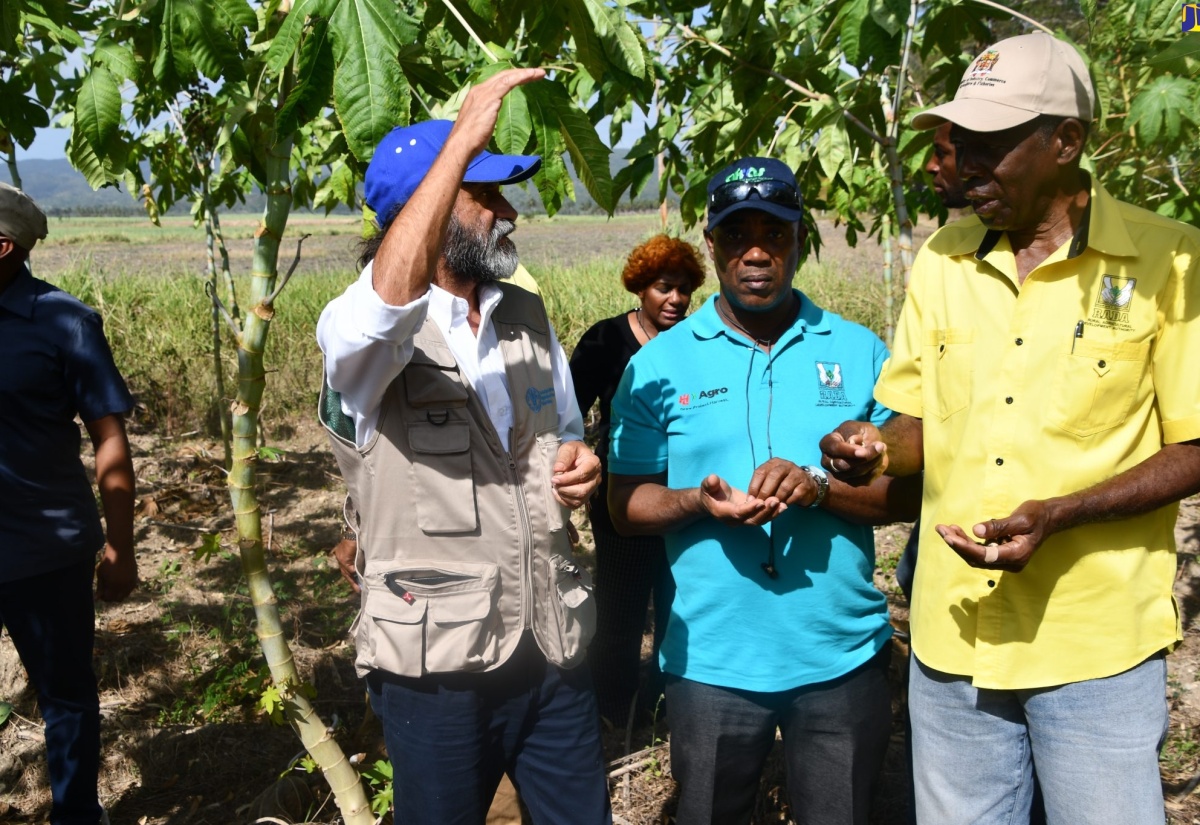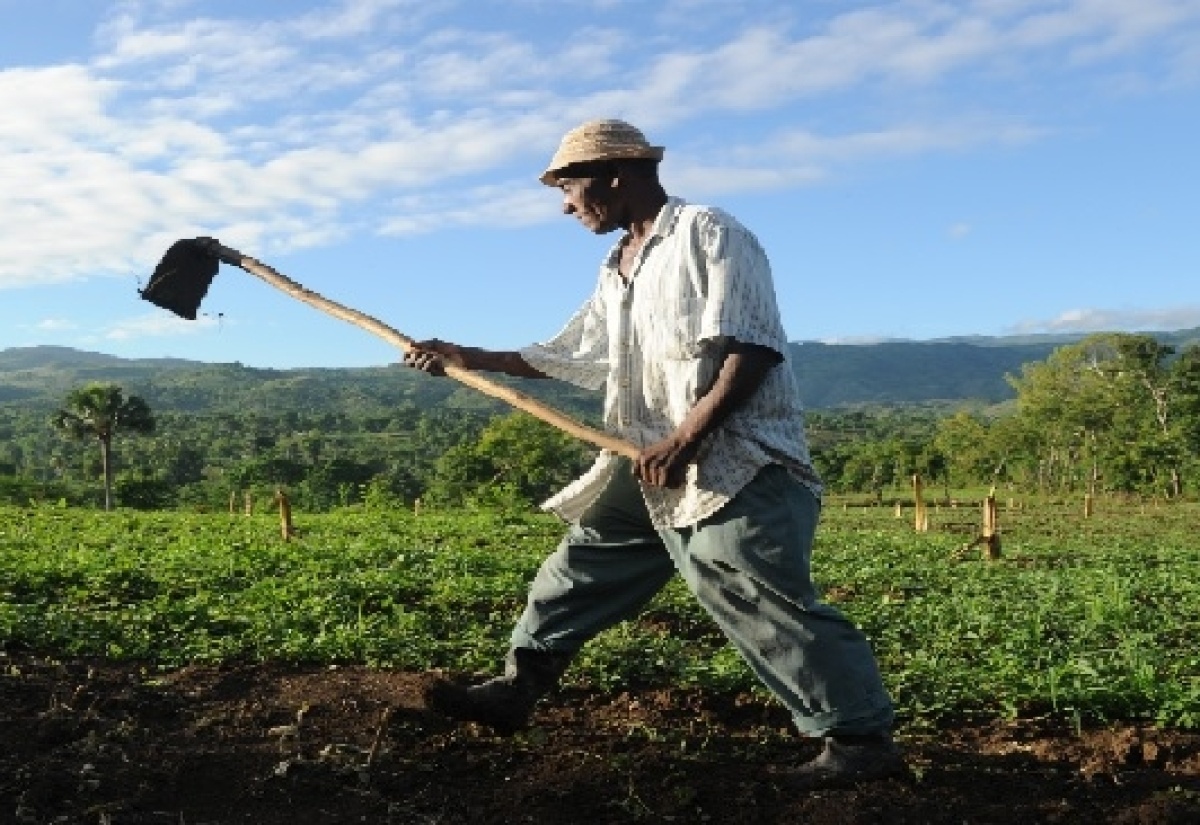Minister Says Holland Estate Has Become Launching Pad For Farmers
By: , February 13, 2020The Key Point:
The Facts
- The Minister, who was responding to questions from reporters, following a recent tour of sections of the 2,400-acre property, added that a variety of specialist crops are being grown on the Estate, with many of the nearly 230 farmers seeing early success.
- “This is a property that was once occupied by Appleton Estate for their sugarcane production,” the Minister pointed out.
The Full Story
Minister without Portfolio in the Ministry of Industry, Commerce, Agriculture and Fisheries, Hon. J.C. Hutchinson, says the Holland Estate in St. Elizabeth has become a launching pad for farmers trying to access both the hotel and export markets.
The Minister, who was responding to questions from reporters, following a recent tour of sections of the 2,400-acre property, added that a variety of specialist crops are being grown on the Estate, with many of the nearly 230 farmers seeing early success.
“This is a property that was once occupied by Appleton Estate for their sugarcane production,” the Minister pointed out.
“They gave it up for two main reasons. One, there were over four hundred heads of cattle here on the property that they just couldn’t get off, and which were wreaking havoc on their cane plants. The other one was their electricity bill, which was costing them some $1.5 million per month, pumping water off the property,” he added.
Mr. Hutchinson said that once Appleton decided to give up their lease with the Sugar Company of Jamaica (SCJ), a number of private interests immediately made overtures to occupy the Holland property.
He said the decision was made to give preference to small farmers, who, with the help of the Rural Agricultural Development Authority (RADA), have been utilising every inch of the 1,400 acres that were leased to them.
The Minister noted that of the remaining acres, 400 have been allotted to the Airports Authority of Jamaica (AAJ) for the expansion of their airstrip, and another 300 acres have been set aside for cattle rearing.
“The local farmers are doing sweet potato, pineapple, coconut, melon, squash, sorrel, banana, cucumber, lettuce, scallion, beans, broccoli, sweet pepper…just about everything,” Mr. Hutchinson said.
“Our farmers have become very sophisticated and business savvy and know exactly what is at stake. They know that farming is now big business and that there is good money to be made if the right markets can be accessed. RADA is also now very involved here at the Holland Estate. They have a designated representative who is here basically every day with the farmers to give advice and to provide expertise,” the Minister noted.
Mr. Hutchinson said farmers also have their own target markets where they can sell directly to retailers and wholesalers or to persons who have direct access to the overseas market.



